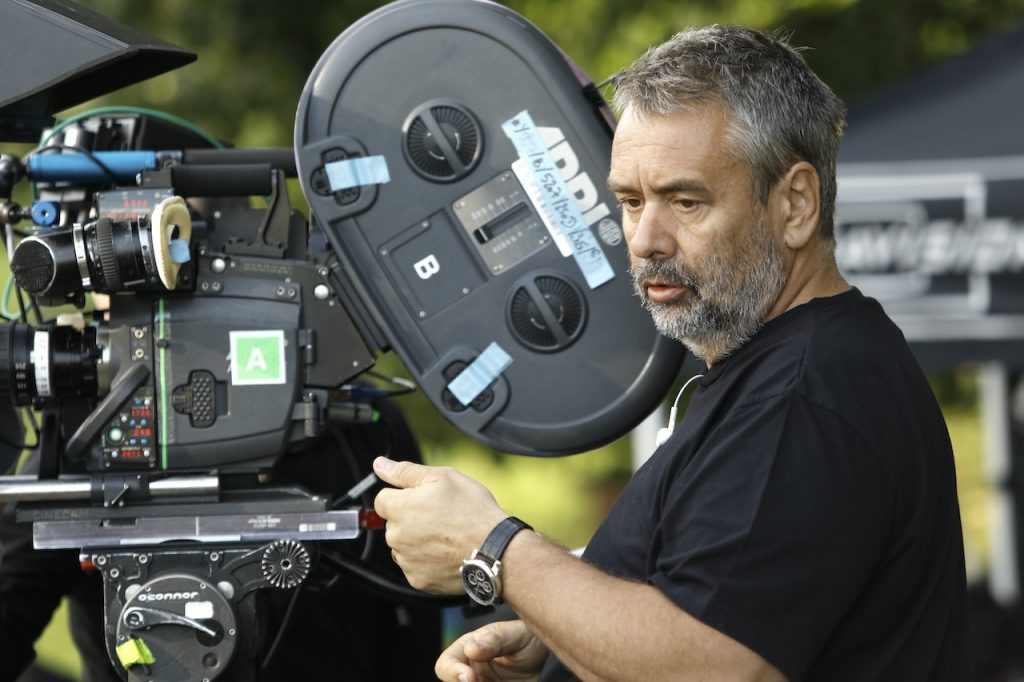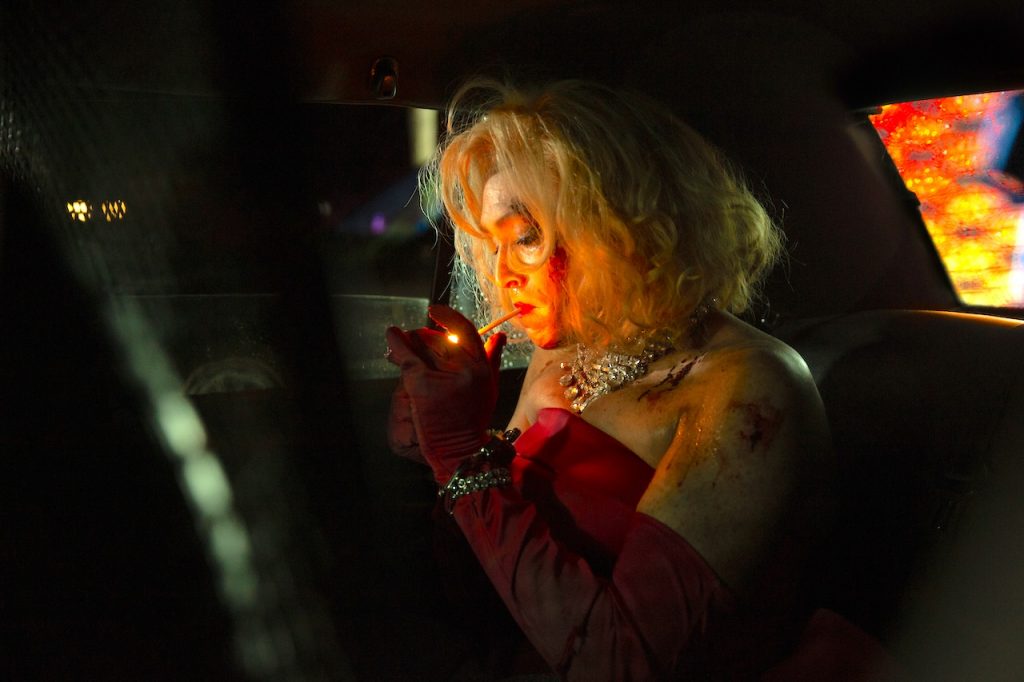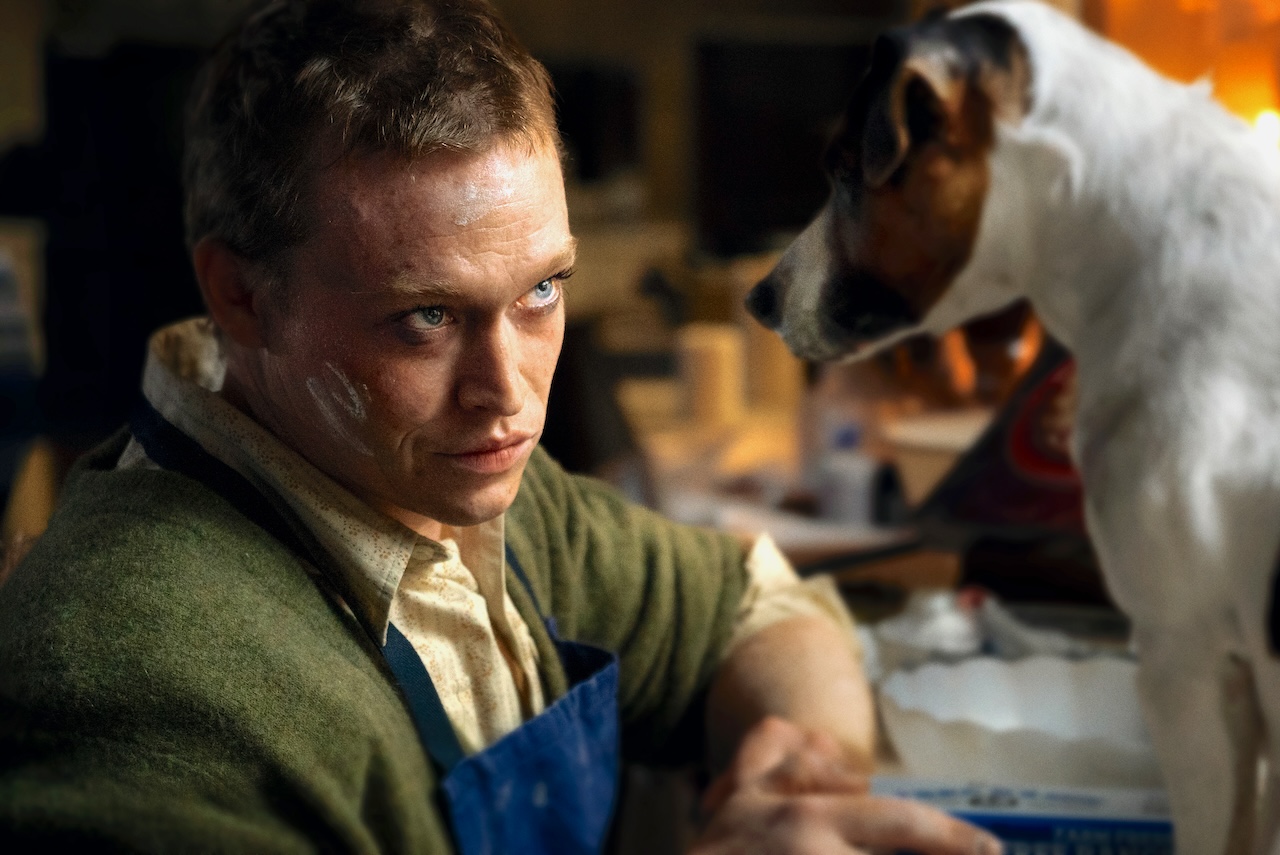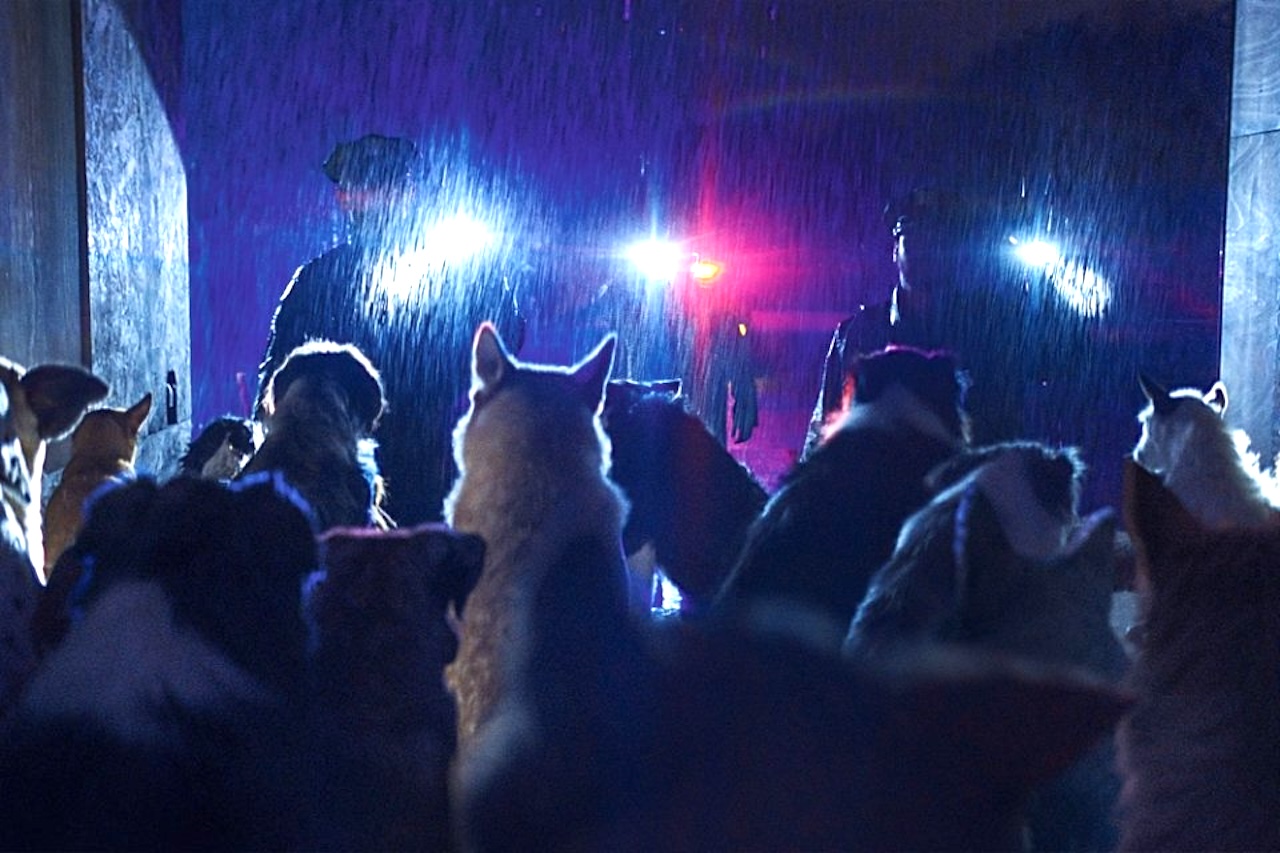Wherever there is an unfortunate…
God sends a dog — Alphonse de Lamartine
This is the mantra that Douglas Munrow (Caleb Landry Jones) aka DogMan lives by in Luc Besson’s tragi-comic film DogMan. It tells the story of a man traumatized by childhood who finds solace in the company of his canine friends.
The idea for DogMan first came to Besson after reading an article about the trauma caused to a five-year-old boy who was thrown in a cage by his French family. This formed the foundation for Douglas character. DogMan illustrates humanity’s proclivity for cruelty, but also its propensity to heal through love – love of humans and love of dogs.
Douglas doesn’t seek revenge after his ordeal. He seeks peace, belonging, and comfort. His complex character is driven by sadness and strength rather than bitterness and pity.
Although Besson wasn’t personally locked in a cage, he refers to his younger years which left an indelible scar in his psyche. His parents divorced when he was young, they remarried and started new families, and young Luc was packed off to a boarding school out of the way.
“The trauma comes from there. The loneliness. You have to survive. You have to find a good reason to live. I realized that there’s a little bit of this trait in almost all my characters… the loneliness, the solitude, and isolation,” continues Besson. He was drawn to the unconditional love dogs provide their owners.

Luc Besson
After considering the article about the caged French boy, Besson read Lamartine’s quote on dogs being the salve for human misery. Man’s best friend if you will. “But, you also have the dogs who are the guardians of the hell.” This thematic tug of war between good and evil excited Luc and informed the character of Douglas.
Who Is Douglas?
Douglas is a character who we treat with skepticism and trepidation upon meeting him. Yet, he’s compelling and deserving of compassion.
“I think that the storytelling is very similar to The Elephant Man or Frankenstein,” comments Besson. “In the opening scene, there’s the monster. He’s in a dress and he has blood everywhere. Who is this monster? And, little by little, we demonstrate that the monster is not him. The monster, for most of the time, is the people around him.”
Much like these so-called monsters, the audience grows to understand and love Douglas and his preference for dogs.

Douglas Munrow (Caleb Landry Jones) Photo by Shanna Besson
During this opening scene, Douglas in Marilyn Monroe drag, is being questioned by police after being pulled over in his car. The cops are scared. The audience is scared. They find the dogs in the back. Wow! “I want to wake up your curiosity. Who is this guy? Where did he come from? What happened to him? Why is there blood on him?,” explains Besson. He portends that such a gripping introduction to Douglas might invite the audience to watch him for another ten or fifteen minutes.
Then we learn he was in a cage when he was young. Then the stakes are raised and he’s surrounded by Mexicans who’ve set a trap for him. “So I try to build DogMan almost like a thriller.”
Douglas performs as a variety of singers including Edith Piaff and Marlene Dietrich. He’s a chameleon who changes to survive.
“He’s been in a wheelchair from a young age. He has the privilege to work with this young girl Evelyn (JoJo T. Gibbs) who’s an actress. She’s going to change his life because she tells him, ‘If you don’t like your reflection, if you don’t like who you are, invent somebody else’s play.’ It’s the essence of acting.”
“Suddenly you realize that once in a while, he can be a prince. He can be a flower. He can be an animal. He can be whoever he wants… Like an actor, he will never be a king except in a movie. But when you realize that acting can save his life, it can put some happiness in his life.”
“I want to show that this character didn’t do anything wrong. He’s a baby. He’s a child. Why are people, his family, his life hurting him so much? Every time he has hope, this hope is almost destroyed.”

Douglas Munrow (Caleb Landry Jones) Photo by Shanna Besson
Despite every adversity Douglas has endured, he decides to be a good man and not pursue vengeance which is the normal temptation. The Joker, on the contrary, chooses to be a bad person.
Douglas isn’t a perfect person by any means. He trains his dogs to steal and hurt people who try to harm him. Douglas doesn’t seek revenge or justice. He’s simply trying to survive.
“When someone is different, society is supposed to help and support them. But, I think that most of the time the people don’t do that. And for me, the message and the morality of DogMan is to be a real human being. When someone is different, no matter what is different, you have to be there, and you have to consider a difference as a richness, nothing else.”
Luc Besson has conversed with several wheelchair users and he admires their efforts to rebuild a version of their lives where they cannot walk. There are challenges, but also a determination not to make their lives miserable.
Douglas is aware of his fate if he continues along his current trajectory. How does it end for him?
“When the movie starts, when Douglas is in jail, he knows already the end. That’s why he talks to Evelyn. We don’t know the end. She doesn’t know the end. He chooses this end. Life is too hard for him.”
“I think it’s a kind of acceptance for Douglas. After a while, it’s too much. He saved her. And now he can go because it’s too much for him. Too much pressure, too much against him.”
On Tone
“The tone, I will say, is emotional for sure. It’s a mix between real and fantasy. It is a magical, real fairy tale.”
DogMan navigates a curious blend of heightened tragedy and comedy – sometimes to the point of absurdity. At other times, it feels operatic and mesmerizing. We asked Luc Besson about balancing the lighter moments with the dark.
“Something happened to me a long time ago. I was playing pool with my friend and then one of my other friends told a joke and we start laughing. I had tears. And then the phone rings and I answer my phone. I just lost my dad. That’s life. I like a reflection of that in movies.”
“I don’t believe that any movie is just funny or just dramatic. If we want to attach the movie to life, even if we know that the story is fake, we still want to give some truth to it. For example, the scene when finally Douglas goes to the theater to see this girl acting on stage and he brings the book.” Douglas thinks he has a romantic chance with her until he meets her partner. “It’s a horrible feeling. I love to work on this kind of feeling because thirty seconds, before we were happy for Douglas.”
It really is the rapid shift in fortunes that engages audiences. You can go from happiness to sadness in an instant. Sometimes this can be absurd and inexplicable.
Writing The Luc Besson Way
Besson lets an idea ruminate in his mind before he starts to write. “I don’t take my pen until I’m ready. Sometimes I can think about the movie for a year, two years, ten years. I make some notes. I basically have the A and Z. I know the character. I know a little bit of where I want to go… the kind of color I want.”
“I have four pages for each act [1, 2A. 2B & 3]. I write some notes on the four pages. I can do that for months. And there’s always a moment where it’s boiling inside. I know I have it. I want Douglas to talk. He needs to talk now. He has to talk. And then I sit down, and in two or three weeks I have a first draft.”
“I’m working non-stop for three weeks. I wake up at 4 am. I finish at 5 pm and I go again. I can’t get out… like the monster that I want to write. So then I finish the first draft and usually I make an evolution. I give it to my producer, to my friend, to my mom…”
I write a first draft, second, third. And usually, the one I shoot is number five or six.
Luc Besson has been writing for over forty years, so he arguably has a strong grasp of the screenwriting craft. He hasn’t always been able to write a first draft in three weeks. He started writing The Fifth Element when he was sixteen and decades of rewriting passed before it was eventually produced in 1997.
